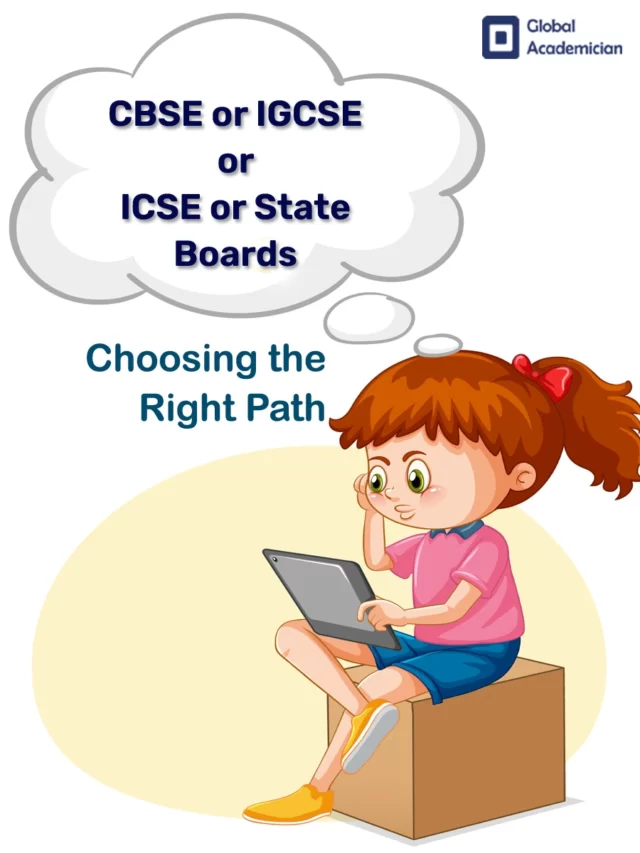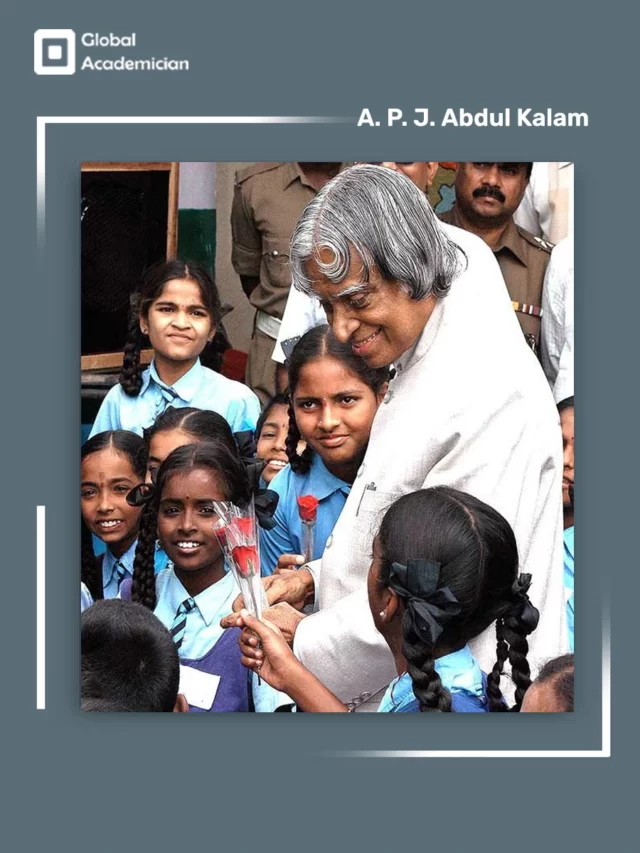Choosing the right education board for your child can feel like navigating a labyrinth. In India, four prominent boards dominate the landscape: CBSE, IGCSE, ICSE, and State Boards. Each offers a unique learning experience, catering to different learning styles and aspirations.
CBSE, IGCSE, ICSE, or State Boards?
| Aspect | CBSE | IGCSE | ICSE | State Boards |
| Curriculum | National curriculum by NCERT | Global curriculum by the University of Cambridge | Blended curriculum with Indian and international content | Follow state-specific curriculums |
| Medium of Instruction | Primarily English, with Hindi as an optional language | English only | English as the primary language, with options for regional languages | Primarily regional languages |
| Assessment | Board exams at Class 10 and 12 | Continuous assessment, external exams in Years 9 and 11 | Board exams at Class 10 and 12 | State-specific board exams |
1. Why Choose CBSE Board? Advantages and Drawbacks:
The Central Board of Secondary Education (CBSE) stands as a cornerstone in the Indian education system, playing a pivotal role in shaping the academic journey of millions of students. Established with a national perspective, CBSE follows the curriculum prescribed by the National Council of Educational Research and Training (NCERT), emphasizing a strong foundation in core subjects and Indian history. Known for its rigorous standards, comprehensive syllabus, and holistic approach to learning, CBSE has earned widespread recognition, making it a go-to choice for many parents seeking a well-rounded education for their children.
| Advantages | Drawbacks |
| 1. Strong base in core subjects. | 1. Rigorous curriculum may cause stress. |
| 2. Emphasis on holistic development. | 2. Primarily English-focused. |
| 3. Standardized assessment at Class 10 and 12. | 3. Challenges in addressing individual learning styles. |
| 4. Diverse subject choices for personalized learning. | 4. Foster unhealthy competition. |
| 5. Nationally recognized and accepted. | 5. Reduced unstructured playtime. |
| 6. Embraces technology in education. | |
| 7. Integrates international content. | |
| 8. Aligns well with competitive exams. | |
| 9. Vast network of CBSE-affiliated schools. | |
| 10. Focus on life skills development. |
2. Why Choose IGCSE Board? Advantages and Drawbacks:
Embarking on a global educational journey, the International General Certificate of Secondary Education (IGCSE) is a beacon of international standards in India. Developed by the University of Cambridge, the IGCSE curriculum is designed to foster critical thinking, creativity, and a global perspective. With an emphasis on continuous assessment and a broader range of subjects, IGCSE prepares students for the challenges of a rapidly evolving world. Recognized worldwide, this board opens doors to diverse opportunities, making it a compelling choice for those seeking an education that transcends borders.
| Advantages | Drawbacks |
| 1. Fosters critical thinking and creativity. | 1. Demands significant dedication. |
| 2. Strong English emphasis and global exposure. | 2. Solely in English. |
| 3. Promotes individual growth and co-curriculars. | 3. Fewer ICSE-affiliated schools. |
| 4. Applies knowledge to real-world situations. | 4. May foster unhealthy competition. |
| 5. Continuous assessment for ongoing feedback. | 5. Generally more expensive. |
| 6. Wide range of subjects and electives. | |
| 7. Nationally recognized, prepares for competitive exams. | |
| 8. Encourages self-directed learning. | |
| 9. Instills strong ethical values. | |
| 10. Qualifications recognized globally. |
3. Why Choose ICSE Board? Advantages and Drawbacks:
In the tapestry of Indian education, the Indian Certificate of Secondary Education (ICSE) weaves a unique blend of Indian and international elements. Offering a curriculum that emphasizes holistic learning, strong language skills, and a global outlook, ICSE stands out for its commitment to nurturing well-rounded individuals. With board exams at the end of Class 10 and 12, ICSE provides a comprehensive evaluation of students’ academic prowess. This board is an ideal choice for those who appreciate a harmonious integration of Indian values with a broader, global perspective.
| Advantages | Drawbacks |
| 1. Internationally recognized qualification. | 1. Generally more expensive. |
| 2. Emphasis on critical thinking and problem-solving. | 2. Fewer IGCSE-affiliated schools. |
| 3. Encourages independent learning. | 3. Adapting to an international curriculum. |
| 4. Wide range of subjects and electives. | 4. Variable teaching quality. |
| 5. Continuous assessment and practical application. | |
| 6. Adaptable and integrates technology. | |
| 7. Aligns with international university requirements. | |
| 8. Strong language skills and global perspectives. | |
| 9. Fosters personal and social development. | |
| 10. Connects students globally. |
4. Why Choose State Boards? Advantages and Drawbacks:
Diversity is the hallmark of Indian education, and State Boards play a crucial role in reflecting the rich cultural and linguistic tapestry of each region. With curriculums tailored to the specific needs of individual states, these boards prioritize regional languages, culture, and history. State Boards offer an educational experience deeply rooted in local traditions, providing students with a strong connection to their heritage. As the bedrock of education in many regions, State Boards contribute to the accessibility and affordability of quality education, making them an integral part of the educational landscape in India.
| Advantages | Drawbacks |
| 1. Emphasis on regional languages and culture. | 1. Less emphasis on international content. |
| 2. Generally more affordable. | 2. Standards may vary between states. |
| 3. Offers subjects relevant to the state. | 3. Qualifications may not be widely accepted globally. |
| 4. Aligns with state-level entrance exams. | 4. May not prioritize English proficiency. |
| 5. Accepted within the state for higher education. | |
| 6. State universities recognize state board qualifications. | |
| 7. Strong sense of community and cultural relevance. | |
| 8. Prevalent in rural areas, making it accessible. | |
| 9. Offers practical and vocational subjects. |
Choosing the Right Fit:
- CBSE: Ideal for students seeking a strong foundation in Indian culture and history with a focus on core subjects.
- IGCSE: Suitable for students aiming for international studies or seeking a broader global perspective.
- ICSE: A good choice for students who thrive in a blend of Indian and international education with emphasis on language skills.
- State Boards: Cater to students who prefer learning in their native language and immersing themselves in their local culture.
Beyond the Curriculum:
- Consider your child’s learning style and interests.
- Think about your long-term educational goals for your child.
- Research the availability of schools offering each board in your area.
- Talk to parents, teachers, and educational experts for further guidance.
Ultimately, choosing the right board is about finding the best fit for your child’s individual needs and aspirations. By carefully evaluating the differences between CBSE, IGCSE, ICSE, and State Boards, you can make a well-informed decision that paves the path for their future success.
To stay ahead and stay informed about the latest educational updates, trends, and insights, we invite you to subscribe to our newsletter and regularly explore our blog. You can also connect with us on our Facebook Page to join our educational community at Global Academician. Join us on these platforms and embark on a journey of continuous learning and knowledge sharing.





